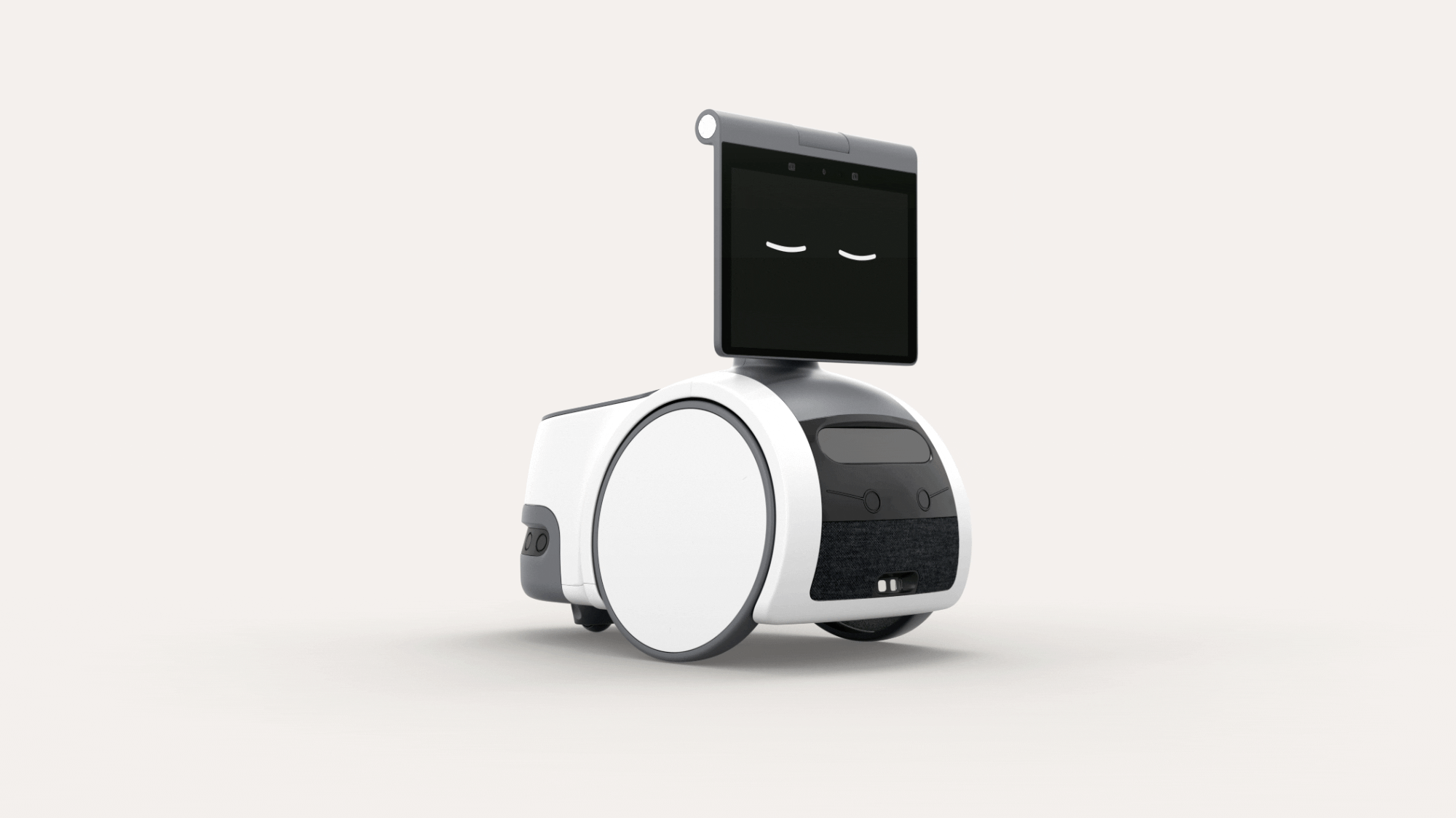Amazons Astro Is a Robot Without a Cause
What do you get when you mix Amazon’s Alexa voice assistant with an Echo Show tablet, give it a hefty dose of artificial intelligence, integrate it all with Ring’s home security system, and let it roll around your home autonomously? You get a robot for the sake of a robot.
Actually, you get Astro, Amazon’s long-rumored home robot. The company has been working on this for nearly four years, and it has plans for Astro. It’s just not quite sure exactly what those are yet, so it’s offering the robot by invitation only, hoping thousands of early customers can help define what it’s for. The 2-foot-tall, 20-pound robot has a 10-inch touchscreen; includes an array of sensors, cameras, and microphones; and can wheel, multi-directionally, around your home. It costs $1,000.
Astro underscores Amazon’s seriousness about robotics, an area the company has invested heavily in for years as part of its warehouse network. It also shows how serious Amazon is about getting its devicesâ€"and its servicesâ€"into every corner of our homes. But Astro, as adorable as it is, is a robot without a cause, at least for now. Amazon’s hardware chief Dave Limp identified a few potential use cases in an interview with WIRED, including eldercare and home security. But ultimately, Limp says, the company wants to get it into customers’ hands so it can identify “unique use cases†for the bot.
Robot Rock Video: Amazon
Video: AmazonThe Astro bot is powered by two Qualcomm chips, with artificial intelligence processing built into the chipset. Its operating system is based on FireOS and Linux. It has five motors to give it some oomph, and it can carry a small payload on the back (anything that weighs less than 5 pounds).
Its face is a plain-looking tablet, but this is where you can swipe or tap your way through commands or video chats without having to rely on voice control. It's also where you'll find Astro's eyes, which are meant to give it more life than the cold, glass screens we're used to. Alexa is built into Astro too, so you can also dad-joke with it to your heart’s content.
Early reports have likened this to a robot vacuum cleaner, and they’re not wrong, minus the whole clean-your-house part. Astro is battery operated and, when it’s depleted, finds its way back to a fixed charging dock. Even more akin to a robot vacuum cleaner are the array of sensors in the bot: Astro is packed with “ultrasonic sensors, time-of-flight cameras, and other imaging tools that let the robot know what’s around it and where it’s going,†according to The Verge. It also has a periscope camera that extends from the top of the bot.
This begs the inevitable question of what Astro’s purpose is, and the answer seems to be a little bit of everything. Its 5-megapixel video calling camera can be used for chats with the grandparents. You can teach it to follow you around while it plays music from its tiny speakers. You can use it to transport small goods to someone else on the same floorâ€"Astro doesn’t go up or down stairsâ€"or you can use it to monitor your Ring home security cameras. You can socially engage with it or treat it like another pet.
Limp says that over the past year, while he's had Astro in his own home, he's grown accustomed to Astro waiting at the door for him. Astro may not have the humanoid characteristics that catapult it into uncanny valley territory, but Amazon believes it can still be like family.
Beta TestLimp wouldn’t say exactly how many robot units the company plans to make available to early customers, or what Amazon's timeline is for a wider release of Astro. He says the team plans to build a “meaningful number†of robotsâ€"not millions, but not just hundreds, either.
“I don’t think we know what the upper bound of what we’re going to build is, either,†Limp says. “It’s a little bit like when we launched the Echo; we really under-forecasted that.â€
Limp acknowledges that it’s not an exact parallel. The Echo speakers are much cheaper than Astro and primarily process voice commands (though some devices also have screens). The challenges with Astro are in some ways more complex; it has to map and navigate physical spaces in addition to processing voice commands and supporting video streams.
And, as with other devices Amazon has designed for the home, products like Astro raise questions about user privacy and consent around recording devices. Another Amazon venture into home robotics, the Ring Always Home Cam was first announced last September and was met with a backlash from privacy advocates. Amazon and Ring delayed the product by a yearâ€"Limp says he sometimes has to adopt the role of “chief slowdown officerâ€â€"until the company felt it was ready to ship to customers. Even still, the home drone is also available by invite only.
With Astro, all of the map processing and storage is supposed to happen locally on the robot. Facial recognition data is also stored locally. Limp insists that early users will have the ability to delete their voice data, or a map made of their home, daily. “If they receive an invite, it’s not like we’re asking them to sign a document saying they won’t delete their data,†Limp says.
But he also hopes some customers will opt to not delete their data, because “that would defeat some of the help in making the product better.†Beta testers, activated.
If you buy something using links in our stories, we may earn a commission. This helps support our journalism. Learn more.
More Great WIRED Stories
0 Response to "Amazons Astro Is a Robot Without a Cause"
Post a Comment